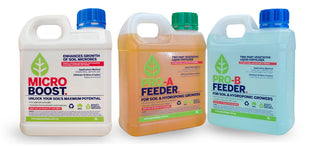| Tomato |
Pinnacle, Truss |
Basil, Marigold, Carrots, Lettuce, Onions |
Corn, Potatoes, Broccoli, Cauliflower |
IPM: Use reflective mulches to deter whiteflies; plant marigolds to repel nematodes and aphids; regularly inspect for aphids and tomato hornworms. |
| Lettuce |
Cos, Butterhead |
Carrots, Radish, Cucumbers, Peas |
Parsley |
IPM: Use floating row covers to prevent pests like aphids and caterpillars; avoid overhead watering to prevent rot; inspect for slugs and snails regularly. |
| Zucchini |
Blackjack, Lebanese |
Nasturtium, Corn, Beans, Marigold |
Potatoes |
IPM: Handpick squash bugs and cucumber beetles; encourage beneficial insects like ladybugs; use insecticidal soap if necessary for aphid control. |
| Broccoli |
Green Sprouting, Purple Sprouting |
Dill, Chamomile, Marigold |
Strawberries, Tomatoes |
IPM: Use row covers to prevent cabbage moths; plant dill to attract predatory wasps; rotate crops to prevent soil-borne diseases. |
| Cauliflower |
Snowball, Purple Cape |
Dill, Sage, Marigold, Chamomile |
Strawberries, Tomatoes |
IPM: Introduce beneficial insects such as lacewings and ladybirds to control aphids; inspect for cabbage moth larvae and use neem oil if necessary. |
| Peas |
Snow Peas |
Lettuce, Carrots, Radishes, Beans |
Onions, Garlic |
IPM: Net young plants to deter birds; inspect for pea weevils and use biological controls like nematodes to manage larvae in the soil. |
| Carrots |
Nantes, Purple Haze |
Peas, Lettuce, Radishes, Onions |
Dill, Parsley |
IPM: Use fine mesh or row covers to keep out carrot flies; plant in well-drained soil to prevent root rot; encourage natural predators to control aphids. |
| Radish |
White Icicle, Cherry Belle |
Lettuce, Carrots, Peas, Cucumber |
Hyssop |
IPM: Rotate crops to avoid root maggots; handpick pests like flea beetles; use neem oil to control leaf-eating pests. |
| Capsicum |
Bell Pepper, Sweet Banana |
Carrots, Onions, Basil, Lettuce |
Beans, Brassicas |
IPM: Use sticky traps to catch whiteflies; prune lower leaves to reduce fungal disease risk; inspect regularly for aphids and treat with insecticidal soap. |
| Spinach |
Bloomsdale, Winter Giant |
Peas, Beans, Cabbage, Strawberries |
Potatoes |
IPM: Encourage beneficial insects like predatory beetles; avoid overhead watering to prevent fungal infections; use organic mulch to prevent weeds. |
| Beetroot |
Detroit Red, Golden |
Onions, Lettuce, Cabbage, Spinach |
Pole Beans, Mustard |
IPM: Rotate crops annually to prevent soil-borne pests; use row covers to deter leaf miners; monitor for aphids and use insecticidal soap if necessary. |
| Cucumber |
Lebanese, Marketmore |
Corn, Beans, Radish, Marigold |
Sage, Potatoes |
IPM: Handpick cucumber beetles; apply beneficial nematodes to control soil pests; use neem oil or insecticidal soap for aphid management. |
| Pumpkin |
Butternut, Kent |
Corn, Beans, Radishes, Nasturtium |
Potatoes, Squash |
IPM: Use row covers to prevent squash vine borers; inspect leaves for powdery mildew and use organic fungicides if needed; encourage natural predators. |
| Onions |
Brown, White |
Carrots, Beets, Lettuce, Cabbage |
Peas, Beans |
IPM: Rotate crops to avoid onion maggots; apply neem oil for thrip control; mulch to suppress weeds and prevent competition for nutrients. |
| Basil |
Sweet Genovese, Thai |
Tomatoes, Peppers, Lettuce, Oregano |
Rue |
IPM: Inspect for aphids regularly and introduce ladybugs or lacewings for biological control; avoid overwatering to prevent root rot. |
| Corn |
Sweet Corn, Golden Bantam |
Peas, Beans, Pumpkins, Cucumbers |
Tomatoes |
IPM: Use crop rotation to manage corn rootworm; encourage ladybugs and lacewings to control aphids; handpick and destroy corn earworms. |





